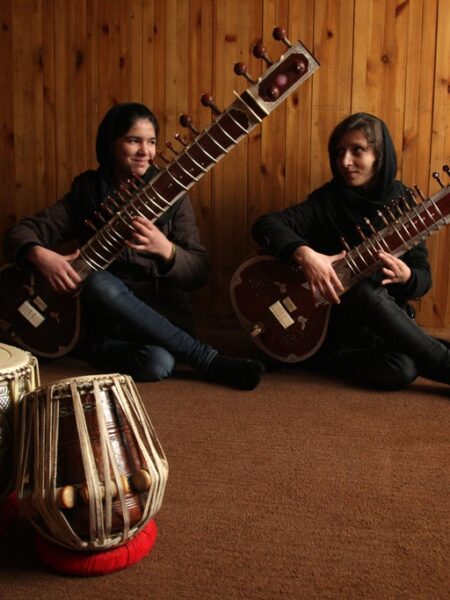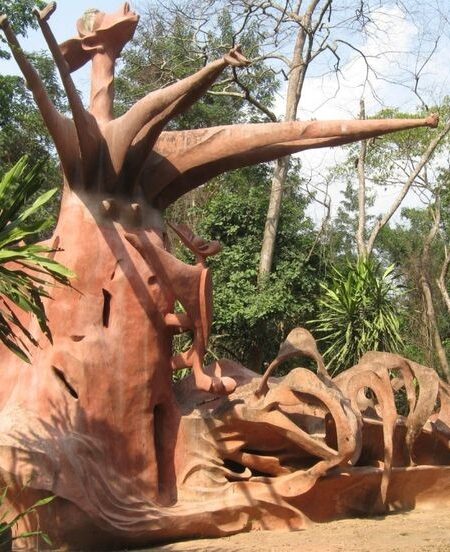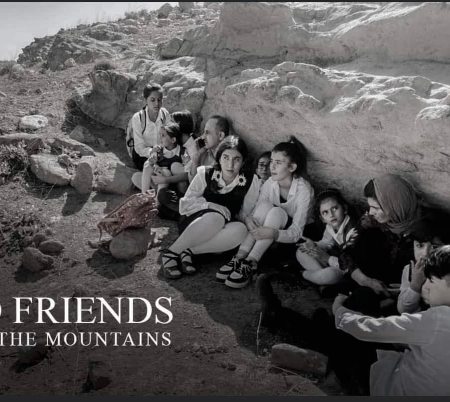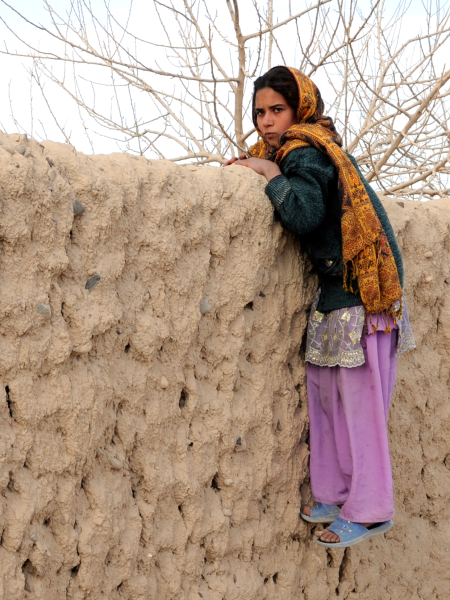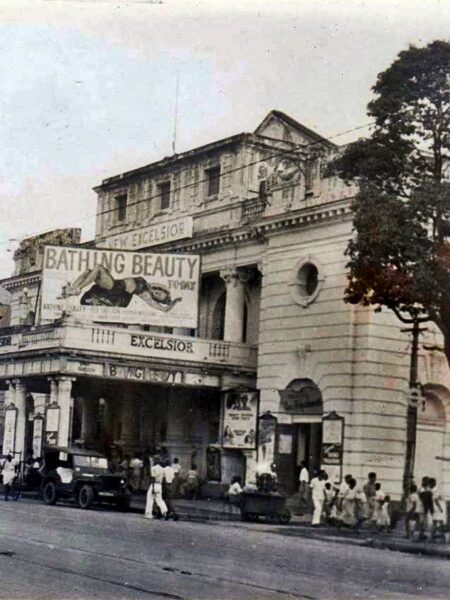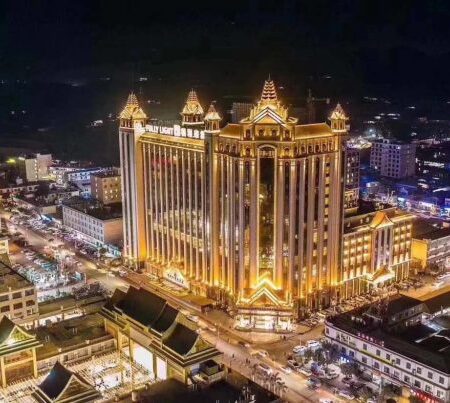The People of Etegbin
Etegbin is a local community located at Ojo in Lagos, Nigeria. It is bordered with Imude on the West, Shibiri on the East and North, and with a river on the South that leads to Apapa a sea port. It has a population of about 10,000 people, which largely consist of businessmen, petty traders, skilled workers and fishermen. It is a riverine community. Its geography is about 2418 kilo meters. Most of the businessmen who reside in this community are Igbo and they work in Alaba International Market, Trade Fare, and beyond. Igbo and Yoruba are the dominant ethnic groups, while the other ethnic groups and foreigners make up the remaining population.
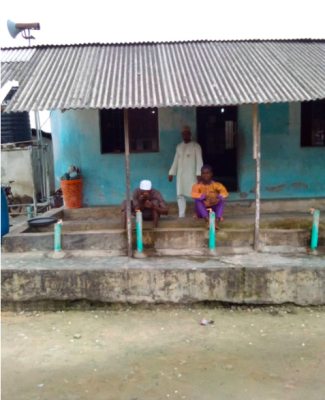
This community has a Baale who is a traditional ruler that oversees local matters without interfering with the functions of the Local Government. LA and Egon are the only notable public schools in this community with over 60 private schools for which most of them are yet to be approved. Most of those who live very close to the river are fishermen and sea transporters. There are about 20-30 Mosques and over 120 Churches. Religion to the people of Etegbin has been the major reason why there has been no record of skirmishes in the community. They observe the teachings of their religions and solely rely on it in their dealings with their neighbours. True peace exists amongst the three dominant religions because they believe that nothing can be achieved through violence, and also, each religion preaches peace. The Yoruba for instance consists of families that are Christians, Muslims, and Traditionalists, so it is difficult for religious crises to take place because if that happens; the people may end up killing their biological brothers and sisters all in the name of religious crises.
The Solution: Etegbin and Religion
It is good to start this section of discussion by quoting Enoch Olujide Gbadegesin on matters of religion, he said that Christianity is the largest and Islam is the second largest religion in the world, thus making the relationship between these two religious communities the most important factor in contributing to meaningful peace around the world (Enoch, 2016). According to the existing records, it has been said that the people of Etegbin are moderately religious; this means that they are not religious extremists or bigots. The community is largely dominated by Christians, closely followed by Muslims and the Traditionalists. Even though the Traditionalists are the minority, they are the real inhabitants of the land, and they alongside the landlords are the key decision makers of the community. It is true that religion indeed forms the integral part of the peoples’ lives as it has been said that the people cannot do without religion.
Before the emergence of the Christian religion to this community, it was said that the Traditionalists were fully in charge, but that the advent of Christianity has greatly reduced traditional practises. According to James Gbesinu, he said that the Christian religion has greatly helped to reduce some fetish practises that once thrived in the community. And one of those common practises is “Oro”. This is a midnight festival which is done primarily to hunt for human heads which will be used to bury the Baale (King) of the land if he dies. Certain numbers of human heads is needed to bury the king, and even if the hunt was designed to last for 10 days it can be continued pending when the figure is complete. According to James Gbesinu, 2003-2004 was the peak of this fetish practise, and that this practise made the people of this community to live in great fear; and that it took the Christian intervention in the place of prayer to end this madness.
The current state of the community is that there has not been any record of Oro in recent times owing to the fact that the practise is gradually fading away and becoming unpopular. It was recently used to scare off the land grabbers on the 14thof February, 2022, when there was a great turmoil in the land owing to the activities of those land grabbers. Despite the outbreak and rapid growth of Christianity and Islam in the land, cognisance must be taken to the fact that there has never been any record of religious crises or skirmishes. John Gebsinu noted that there was a time when the Christians and the Traditionalists had issues in the midnight over whom should runs the night, because while the Christians were observing their prayers in a vigil, the Traditionalists were also willing to carry out their sacrifice in that particular region at that point in time. But he further noted that even that incident never created religious tension because it was forthwith resolved amicably.
In Etegbin, so far, there has been no one who has identified himself to be an atheist, and this suggests why it is been said that the community is indeed religious but not extreme. Like Raji Yakub and Abdul Quadril would have it, that it is ridiculous and somewhat absurd for anyone in Etegbin to say that there is no God considering the wonders of creation. The only ground that Abraham Matthew and John Gbesinu noted could cause religious crises is in with issue of blasphemy. But contrary to Matthew and Gbesinu’s view, Raji Yakub, was of the opinion that the only thing that could spark off a religious crisis is when a Church buys a land that is being by the Muslims as their prayer ground. Yusuf’s view is not farfetched from that of Abdul Quadril who stated that skirmishes is unavoidable if a Christian always face a Mosque to preach each time they are observing their solat.
In other to avoid skirmishes, Usher Mike Usher argues in his paper that Muslims and Christians should look at the areas of convergence or shared values rather than those of their differences (Usher, 2015). He also added that Christians and Muslims should be encouraged to imbibe the virtues of peace (Usher, 2015). If you further look into the works of Usher Mike Usher, he counselled that dialogue and reconciliation centres should be established at local, state, and geo-political zones in the nation where matters of religious differences between members of different religions will be discussed (Usher, 2015). Etegbin has her Baale (King) as the figurehead who will settle such a dispute if it thus arises. Religious crises in Etegbin is highly unwelcomed because of how Kathrine Marshall put her words, that the constitution of Nigeria explicitly gurantees freedom of religion to all (Marshall, Feb, 2020). This same view is also evident in the words of Momoh Lawani Yesufu, that the Nigerian Constitution pre-supposes that an individual has freedom to practise religion of his or her choice without government interference (Yesufu, 2016).
As regards the positive impacts of religion on this community, Abraham Matthew strongly affirms that the Christian religion has greatly contributed significantly to the growth of Etegbin. Part of his proponents was based on the fact that the Christian religion has served as a source of empowerment both spiritually, physically, financially, and otherwise. He opined that many a seminar, programs, and outreaches have been held to empower the people; and that through some seminars, drug addicts, gamblers and other folks who live in perversion have been turned back to the path of life. He also added that some successful businesses in Etegbin are owned by religious folks, some of which include: private schools, hospitals, and some amazing supermarkets. Contrary to Abraham Matthew’s view, Raji Yakub assert that there has not been any serious empowerment carried out by the Muslims to enhance the lives of people because most wealthy folks in the community are not Muslims, but he opined that this act is obtainable in places where Muslim aristocrats live.
Abdul Quadril further corroborated Yakub’s view on Islamic empowerment by adding that although there has been no record of real empowerment, but that the Imams of different Mosque usually solicit for support from goodwill Muslims so that the proceeds of whatever is gathered can be used to help the less privileged. Owing to the recent research which states that some African youths have began abandoning their various religions because they perceive it to be a failed religion, the people of Etegbin have a different view. Religion has formed the integral parts of the peoples’ lives, and as Raji Yakub may have it; it is impossible to separate the people from their religion owing to the fact that some persons have practised their religion for over 50 years; so asking them to quit it will be somewhat ridiculous. Abraham Matthew has it that it is actually possible for the people of Etegbin to do away with the ceremonies of their various religions, but that it is impossible for them to do away with the teachings and tenets of their various religion, especially the Christians who cannot live without the teachings of Christ because those teachings are the very essence of their existence.
Etegbin and Hooliganism
In its little way, religion has tried to unite the people in harmony, making them live their lives with the fear of eternity, but cognizance must be taken to the fact that religion has not succeeded entirely in eradicating the high level of immorality in this community. A lot of the youths in this community are hooligans, way-world, miscreants, and rascals; with the exception of those who are truly dedicated and committed to their religion. Sometimes, there are reported cases of theft, sexual abuse, assaults and many more. According to Abdul Quadril, through words of encouragement by the Imams and faithful Muslims, some backslidden Muslim folks have begun returning to their senses, and there are also testimonies of such successes amongst the Christian circle. Unlike what is obtainable in other parts of Nigeria, there are no records of ethnic violence in this community.
Infrastructural Development And Foreign Investors A Hope For Etegbin
Religion has passed through many critical stages from medieval period to the modern times. It has suffered great deal in the hands of the nationalists, enlightenment and modern thinkers who have shown how irrelevant it is to societal development (Enoch, 2016). Religion has greatly impacted the lives of the people of Etegbin, but it has not contributed to any innovative or technological advancement. This community is still very local and remote when compared to some Lagos communities like Maggodo, Festac, Surulere, Ajah and so on. Parts of what made these areas more developed than Etegbin is the presence of foreign investors which have greatly helped to solve the problem of unemployment, presence of Government facilities, presence of lucrative sites, and most especially; these places are homes to wealthy aristocrats. So, if Etegbin can diverse a means to attract foreign investors, it will help to resolve the issue of hooliganism because these jobless youths will be gainfully employed, and it will thus open her up to profitable trades. Good sites attracts good things, when things that are found in sophisticated areas are present in Etegbin, it will be a home for all.
Concluding Remarks
In conclusion, Etegbin is a growing and developing community that needs foreign intervention for it to thrive and flourish as she is supposed. The presence of the Christian religion has greatly helped halt some perceived fetish traditional practises. The presence of religious tolerance among the three dominant religions has greatly created a peaceful atmosphere for all. The presence of unity in diversity has greatly encouraged ethnic harmony. Almost every nooks and crannies of this community is a site to new constructions (mostly homes and schools), but the presence of companies and industries will effect a lasting change on the community which religion may never have been able to attain.
Endnotes
Oral Interview with Pastor Abraham Matthew.
Oral Interview with Pastor James Gbesinu.
Oral Interview with Raji Yakub.
Oral Interview with Alfa Abdul Lateef Abdul Quadril Olanrewaju.
Oral Interview with John Gbesinu.
References
Religion and Challenges of Development in Nigeria in 21st Century.
– Enoch Olujide Gbadegesin PhD
Religious Conflict and Education in Nigeria: Implications for National Security.
– Usher Mike Usher
The Impact of Religion on a Secular State: The Nigerian Experience.
– Momoh Lawani Yesufu
The Destructive Effects of Religion on the Nigerian Society.
– Dr Ijabla Raymond & Mrs Biodun Aiyegboyin
The Impact of Ethnic And Religious Diversity On Nigeria’s Development Priorities.
– Kathrine Marshall

